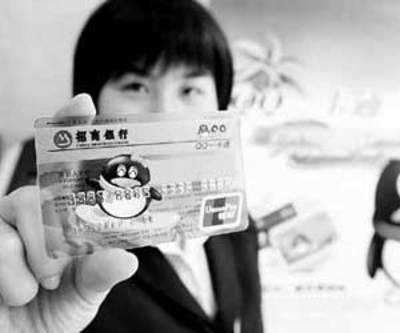QQ – The Skyrocketing Virtual Currency
by Pixeleen Mistral on 12/04/07 at 8:49 am
by Onder Skall
QQ finally made headlines in the Wall Street Journal. Largely ignored here in the west, the hottest virtual currency in China is the QQ. Created by Tencent Holdings Ltd, “QQ Coins” were originally invented as a means for trading virtual items in online worlds and through their popular instant messaging program. For awhile it was just like any other coupon-trading system, but then third parties started accepting QQ as payment for real world services. The value of QQ began to climb as demand rose, and currency traders began making some quick Yuan buying and selling the virtual currency. Small shops started springing up everywhere offering discount QQ Coins.
“State-run media reported that some online shoppers began using QQ coins to buy real-world items such as CDs and makeup. So-called QQ Girls started accepting the coins as payment for intimate private chats online. Gamblers caught wind, too, and started using the currency to get around China’s anti-gambling laws, converting wins in online mahjong and card games back into cash. Dozens of third-party trading posts sprouted up to ease transactions, turning the QQ coin into a kind of parallel currency.”
Obviously the Chinese government is concerned, not only because this unregulated currency is gaining in value, but also in popularity. Regulation of any kind could have drastic effects upon the value of the Yuan, and so whatever move is made next, there is an understanding that it must be cautious. Through some correspondence with Geoff Fowler of the Wall Street Journal I was able to shed a little light on exactly what is being done. While official government statements have requested that web sites not allow “real world” trade for “virtual currencies”, no specific punishments have been itemized for doing so.
“The trouble starts when a virtual currency that isn’t backed by a trusted government, becomes linked to a real one that is through an exchange rate. Virtual currency brokers call that RMT, or real-money trade. When that happened to the QQ coin, it effectively turned into a parallel currency operating alongside the yuan, says Yiping Huang, the chief Asia economist of Citibank.
The creation of too many QQ coins, he notes, could, in theory, create a surge in China’s total money supply, leading to inflation. While few think a QQ monetary crisis is likely, assessing the economic impact is difficult because Tencent won’t say how much QQ coin is in circulation.”
The similarities between this and our situation with Linden Lab are obvious except for one important issue: L$ has no real influence on US$. The same may not be true of the relationship between QQ and the Yuan.
According to Gaming Security Resource, China’s online gaming grew 61.96 percent to 5.96 billion Yuan in 2006. Tencent has made available a debit-card called the “QQ All-in-One Card“. Many may remember Entropia’s failed attempt at a similar card, but it looks like Tencent has been able to make this stick.
As I mentioned earlier, China is taking this one step at a time. Regardless, according to the Wall Street Journal, even the small efforts made so far have had large effects:
“Despite the Chinese government warnings, people continue to trade QQ coins. The new capital controls, in fact, have given them new scarcity value, driving up the price by 70% in recent weeks, says Milly Chen, who trades QQ coins.”








Mongol Whored
Apr 12th, 2007
How many QQs can I get for L$100 lindens?
Neko Longduk
Apr 12th, 2007
About time someone took notice of Tencent and its QQ currency outside China. There was a New York Times article a few months back as well, but other than that, hardly anyone seems to have noticed.
QQ is actually the largest social network in the world. Bigger than MySpace, Friendster, LinkedIn, Mixi, Facebook (and Second Life) put together. QQ isn’t a full-fledged virtual world, but you can make a pretty nice avatar, and with services like HiPiHi coming to the Chinese market soon, Second Life could easily be eclipsed in size.
We all need to remember that the future of social networking, virtual worlds, and online gaming is a very international future, and to ignore that is to ignore the potential of new media as a global engine of change.
Ken Brady (Neko Longduk)
Director, Internation Strategies
General Manager, Asia Region
Centric – Agency of Change
Economic Mip
Apr 12th, 2007
This was news last week when the story broke. Now the far greater concern is what this will mean for virtual currencies in China.
(Currently about 2 yuan each.)
Exchange QQ to L$ QQ coin-> 2 yuan -> 26 US cents -> 70.2 L$ per QQ coin (at 270L$ per US dollar). So about 1.4 coins per 100 Lindens.
NigrasOnMyLawn
Apr 12th, 2007
I spent $2 on a e-penis which I stuck to my forhead, then $3 on a push gun, then shot the next 50 people I saw and used my forhead e-penis to piss/jizz on everyone else.
Im doing my part for the SL economy.
Doubledown Tandino
Apr 13th, 2007
Since when did the chinese language get the letter “Q”?
Duncan
Aug 25th, 2007
It’s pronounced “Ch” i believe.